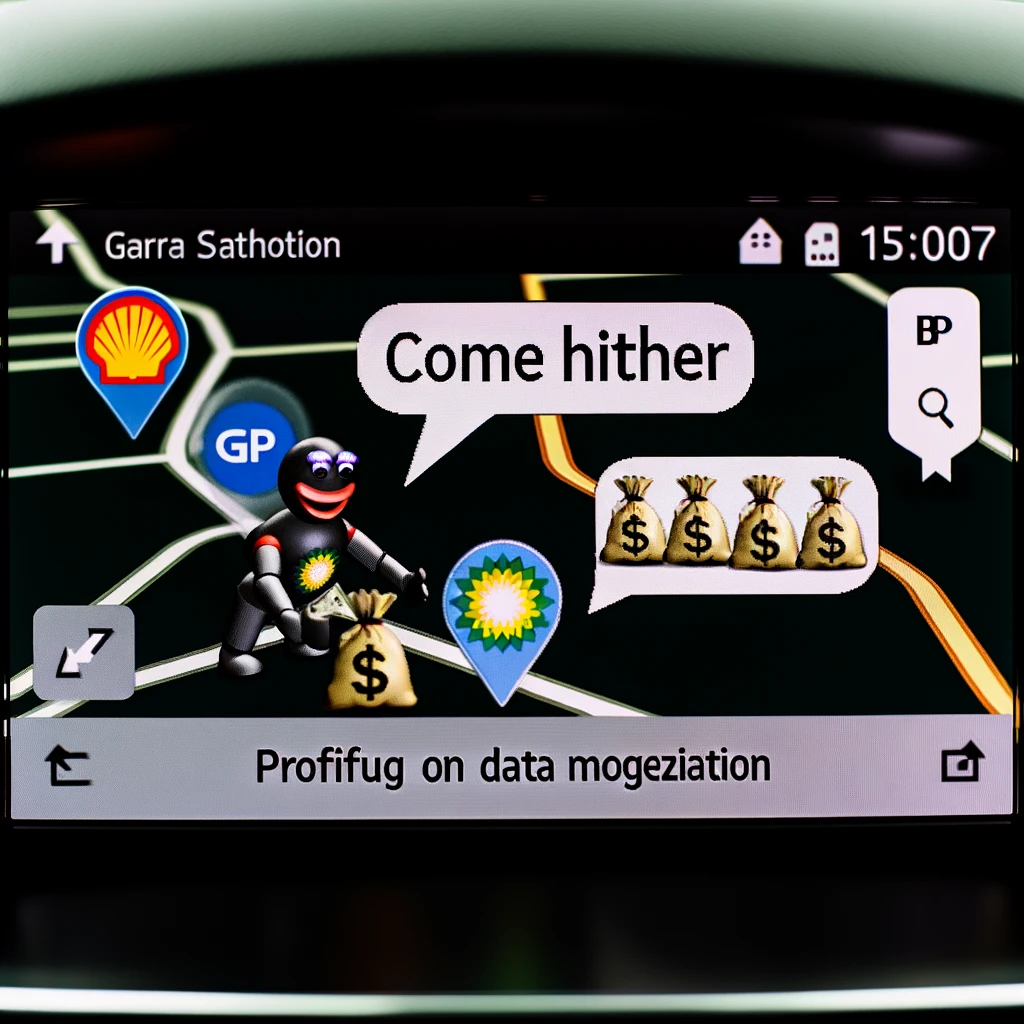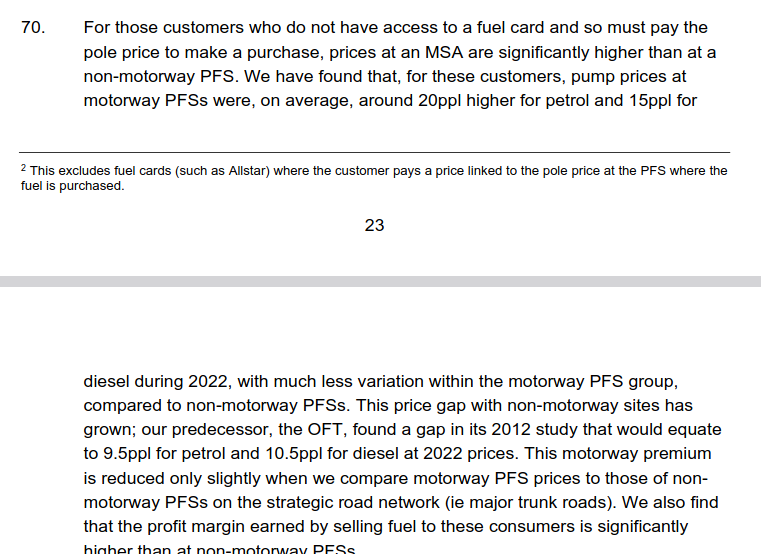2 Cheers for the UK Government's Petrol Station Smart Data Proposals
In which I epxress genuine support for the annoucement today, but also point out that without a solution to the data monopoly problem on the screen, the proposal will not have the wonderful impacts that Secretary of State hopes for - please don't turn this into a mechanism for Google/Apple/Garmin to collect another layer of attention rents.

Smart data really has the wind behind it. Claire Coutinho, Secretary of State for Energy Security and Net Zero, published a consultation today which suggests real urgency in getting a Petrol Pump Price open data scheme going.
This is basically good news. I know my tank is 1/4 full and that I've a couple of long trips coming up. Where shall I fill up? The usual psychology of wait until the needle is really low and then pull into the next service station on my road has obviously been hacked by retailers: they know - especially on motorways - that people haven't chosen that particualr pump for what it offers, and therefore they jack up the prices. This little hack earns the retailers something like 10% more profit than if we'd instead planned it and filled up at a supermarket. This below is from the CMA's extensive analsyis of the problem:

Countinho's hope is this: you make the data available for every price at every service station in the country, the consumer gets good advice about where to fill, and, through the magic wand of (almost costless) data regulation, you've given households real spare cash. So yes, 2 cheers!
Why be so churlish and keep one cheer back? Well ... herer is what I worry happens next with this data. Google, Apple, Garmin and whoever else is powering popular routing applications uses the data to recommend where drivers should stop. Perhaps I get a little message on my navigation screen saying: "We recommend that you fill up soon, and here are a few alternatives that we've carefully selected for you." ... a bit like they carefully select those items in Google shoping, or the apps to show you when you do a search in the appstore.
Behind the scenes, Google - or whoever your favourite monopolist is in this space - will go to Shell and BP and M&S and say: "... wouldn't you love to be in the list of suggested petrol stations? you can be ... for a small fee..."
Next step after that? Every petrol station knows that it needs to pay the Google/Apple/Garmin listing fee to get the customers to the forecourt; they all compete to get prominence in the algorithm ... by paying the gatekeeper ... and then they recoup the gatekeeper tax in the price charged to customers.
So ... what is the actual solution to the Secretary of State's problem? How does she earn that extra cheer?
You have to fix the monopoly problem on the screen as well as on the forecourt. That means that when I do my journey planning on Google Maps, the route needs to be instantaneously available to apps that are working for me, not for Google. And those apps need to have access to the same information that Google gets through Android - I need to be able to share my travel plans by looking at my diary, my bank transactions (have I bought a train ticket, or does it look I'll get to that meeting by car?), my travel history - then it can estimate the fuel level in my car, etc.
If you fix monopoly problems one at a time, you run the real risk that the other monopolists that we have allowed into our lives will make all the hay, and we will feel just as much the plaything of forces beyond our control as ever. So fuel forecourt data is a great start ... but don't make it another disppointing intervention by failing to address the data monopolists that stalk us.